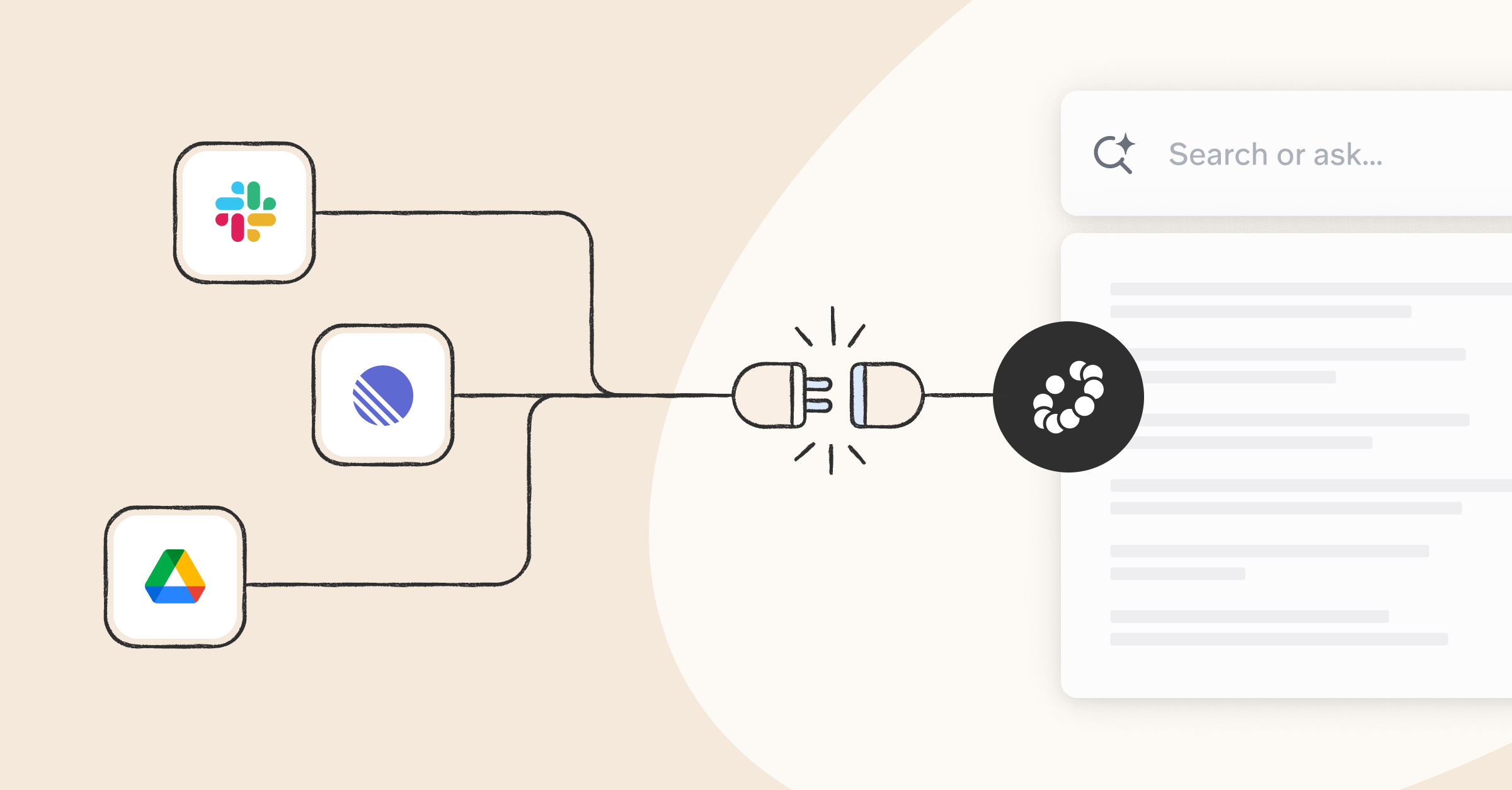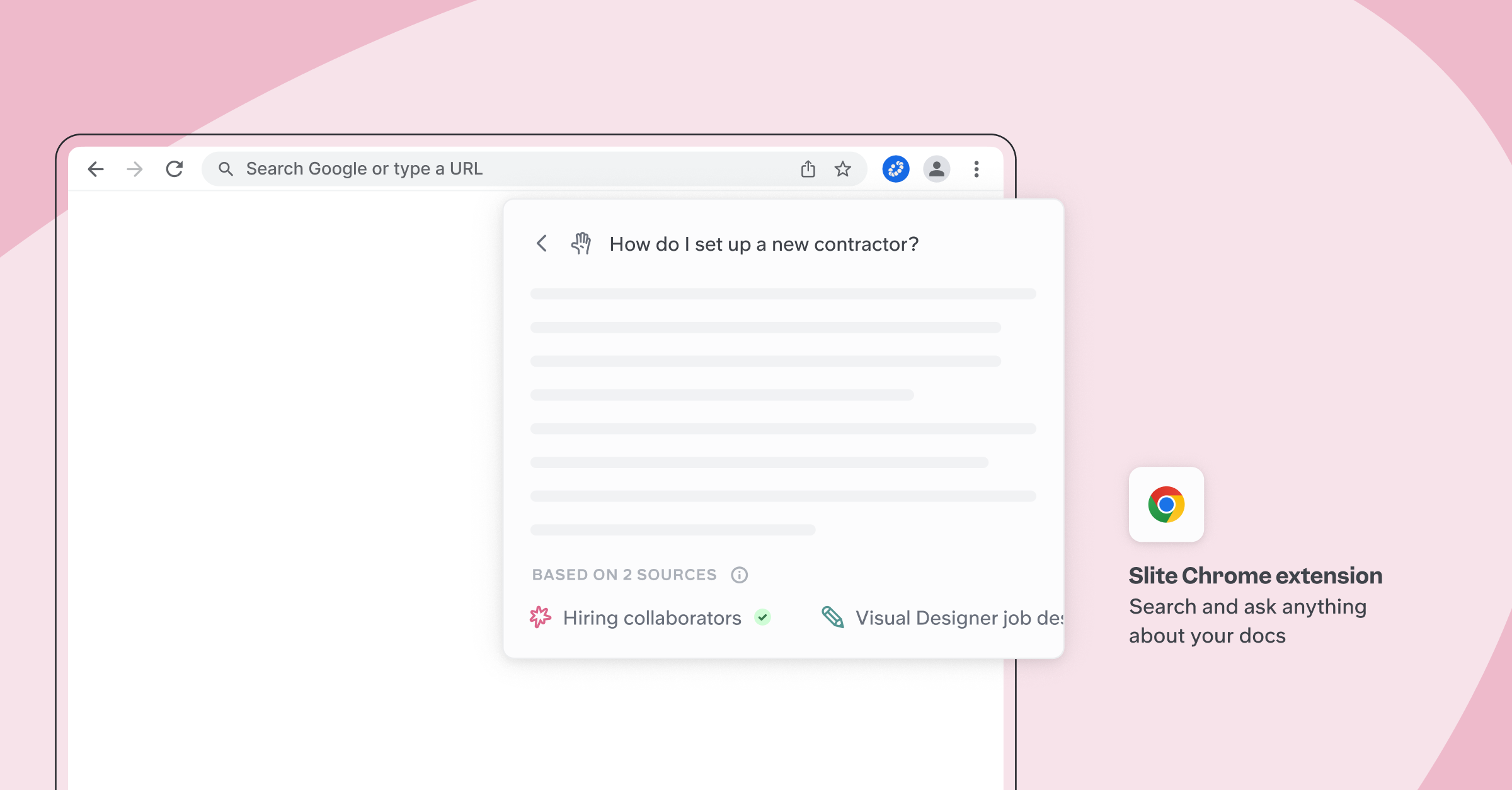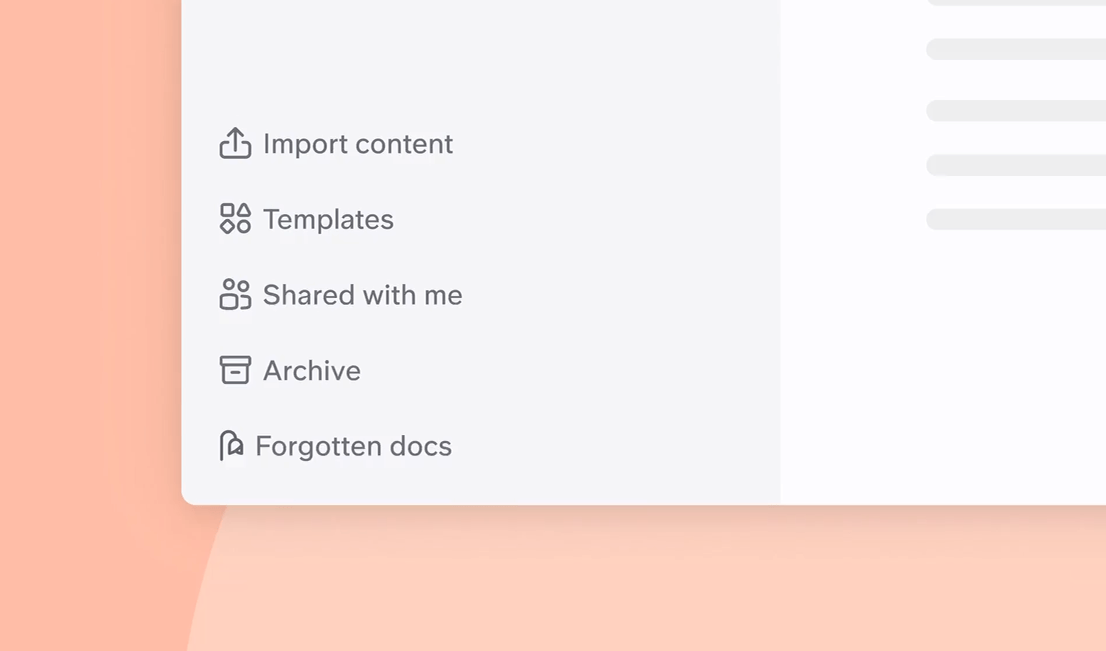Predictions for our industry in 2024
For decades, we got sold on the idea of "Knowledge bases": all knowledge, always up to date, at arm's reach.
But the industry overpromised and under-delivered.
Because with antique tools, who had enough time to clean all their docs, keep them up to date, and know everything their hundreds of teammates had been writing about?
Enter AI. Our industry got smashed by this massive wave, and at Slite, we took our surfboard and rode it ever since. It opened the door to radically new ways to store, maintain, and discover knowledge, finally delivering on the original promise.
As we enter year 2 of this revolution, here is how we see and build the future of Knowledge management with Slite.
Knowledge will go beyond your Knowledge base
Your team shares knowledge everywhere. When they talk, meet, and work on projects.
The Knowledge base is historically home to the canonical part, what remains true year after year, your policies, procedures, and handbooks.
But since knowledge is everywhere, the modern Knowledge Base will be a Knowledge platform, dragging information from all your tools and infusing documents and answers with it.
We are releasing Slite 3rd party sources starting with Slack, Google Drive, and Linear in January, paving the way to a truly complete knowledge base.

Answers are brought to you when you need them
An utterly black spot of sharing information in teams is not even being aware it's written somewhere.
Shared knowledge gets searched in only a fraction of scenarios, but that will change.
We are already releasing AutoAsk on Slack, an intelligence answering you when it can, automatically in Slack, making you and your team win precious hours.
We'll design the same interaction everywhere, and this design pattern, users passively getting value from tools, will be more and more visible in the years to come.

Documents generated for you
Knowledge is born in minds and then appears in discussions and projects.
The future Knowledge base will fill your gaps on its own through the wealth of information your team writes every day. What should be corrected, valuable additions, or even whole new parts to document.
Structure will matter less
Structure has been essential for teams. It gives multiple minds 1 shared framework to retrieve information. But as AI nudges us on interesting pieces to discover and answer our questions, this will matter less and less. Still waiting to make a cross on it, though.

Verification will matter more
The question used to be, "How can I find this !/$#% info?".
That is no longer the case. Ask, and other AI assistants will find something if plugged into all your tools.
Now the question is what will they find and how trustworthy it will be.
Let's face it: our Google Drives are the same as the mess we have in our drawers at home. It's not pretty and certainly not trustworthy.
That's where manual or assisted verification will be an essential part of the modern Knowledge platform.
Substance over format
Let's be frank: we're no Shakespeare when we draft meeting minutes or team updates. Yet, we spend ages on them.
Well, no more! The beauty of the future of documentation will be to feed our editor with substance and get assistance to shape our ideas to their final form.
We saw it in the industry with Slite's Ai doc improver, with text to diagrams or even, more mundane, with Midjourney to generate decorative images. It's just the start, and we will get much more integrated into our editors.
Documentation will start with Questions
Ever heard of the #1 cause of failed startups? Trying to solve unexisting problems.
Same for wiki. We used to write walls of words, guessing what would be useful.
But as we now ask our knowledge, we can see what questions matter and simply document answers! Already in Slite, you can see which questions did not improve your knowledge base, making sure what you write will actually solve your team's problems.
The future will see rise Questions Driven Documentation, similarly to what we saw with Test driven development (TDD) in software.
Developers start by writing tests, such as "Does the timer start when I hit the start button?", then develop the feature and ensure that they will never ship a bug.
With... QDD, you will start by listing all the questions and asking your team to list them as well; then, as you write, your little test suite will go 🟢 🟢 🟢 🟢 .

Written by Christophe Pasquier
Christophe Pasquier is Slite’s co-founder and CEO. Chris’ goal is to help teams do incredible work in better environments, by helping them embrace remote work and async communication. He currently lives in Berlin with his wife and baby Noé. Find him @Christophepas on Twitter!


